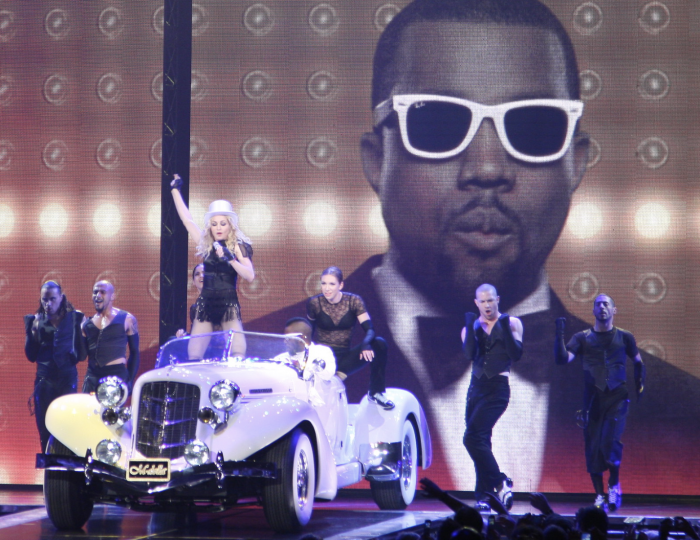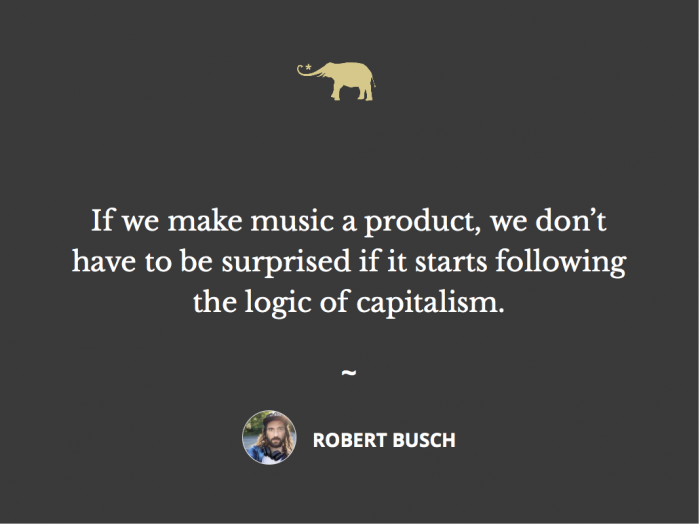What happened to music? And where did we go wrong?
Everything was better before…but before what?
After reading this thought-provoking article about misogyny in the music industry, I asked myself, “How can we stop misogyny in music and make it a catalyst for social justice?”
To create actual change when it comes to role models, morals, and lyrics, we need to take a step back and ask ourselves, “What is music?”
Music is a tribal thing in many ways. The first humans who played music together were drum circles of cavemen (and women) creating rhythms without even knowing the word music. These folks used music to create a bond within their community by connecting over rhythms.
Much later, humans invented instruments and started entertaining the audience by sharing melodies with them. Melodies invite our brain to forget about time and space while anticipating sounds or getting surprised by unexpected tunes.
And then there is a third element: lyrics.
Putting words on top of rhythms and melodies allows the artist to share thoughts, ideas, and demands. It takes their art to the next level.
Folks like Bob Dylan inspired a whole generation to protest against wars, dudes like Kurt Cobain got teenagers questioning authorities, and rappers like Kanye West…well, feel free to complete this sentence yourself.
Music creates communities that share certain feelings, emotions, and desires. But that goes both ways: positive and negative.
We can write a song to achieve world peace or write a song about getting laid. We can process uncertainty and vulnerability, or we can portray ourselves as the king of the world. We can inspire listeners to explore their feelings, or we can offer toxic role models.
But at the same time, we shouldn’t overthink all of this.
After all, music is meant to entertain us. It is a cultural practice of people getting together to create something that brings joy to others. Creating music with a certain agenda often takes away the authenticity and makes it a product instead of an artwork.
Anyone who ever played music with others knows the feeling of connection that exists between musicians. Lately, I got together with a good friend to record some tunes. The results might not be perfect, but it reminded me what music actually is—a way of connecting with others.
And then I look at the music industry itself and ask myself, “Where are all the bands? Why is it almost only solo artists these days?”
Producing an album with a band is a nerve-wracking process. Every band member has their idea of how to make it perfect, and a producer is desperately trying to get all ducks in a row. But I highly doubt that that’s what’s actually happening these days.
Metallica took more than a year to write, record, and mix their “Black Album” that was released 30 years ago—but it would be an understatement to say that it was worth the time.
Today, things are slightly different. Young musicians compete against each other in casting shows, and the winner gets to record an album that was written by someone else. Once that album is released, the artist has to promote it based on what their marketing team tells them.
It’s not a community of musicians who creates these albums; it’s a team of businesspeople trying to make as much money as possible.
Capitalism is killing music.
We all know that sex sells. As authors, we notice that readers tend to click on sex-related articles. Most of us know that there is quite some narcissism in this world—how surprising is it that so-called role models in the music industry are often the most narcissistic characters you could think of?
But both of these things are not new. And it is safe to say that legendary frontmen like Mick Jagger, Steven Tyler, or Axl Rose also have narcissistic tendencies and a high desire for sexual pleasure—but they are still somehow different than rappers these days.
I think the reason for that is that these guys were not on their own. Each of them had band members who always made fun of their personalities, flaws, and imperfections. As long as you play in a band, you will always be held accountable for what you do.
And it goes even further than that: listeners get the chance to project their feelings on other band members besides the person in the front.
This dynamic plays a huge role in forming communities around these bands. There are countless musicians who got inspired by Red Hot Chilli Peppers bass player Flea, there are drummers who want to be like Lars Ulrich from Metallica, and there are guys like me who love Slash while not being a fan of Axl Rose.
My point is that music is a community thing. The moment we make it a product that promotes a single artist, I start wondering if we are talking about an artist or a product.
Nothing wrong with solo artists, but my point is that music has the power to create communities—and why would we want to create a community around a rapper who glorifies taking drugs and abusing women? Unless that’s the type of community we want to be part of.
Someone like Bob Dylan wasn’t driven by getting laid or becoming a billionaire—he wanted wars to stop. He ended up being the voice of a generation.
As consumers, we have to ask ourselves what kind of community we want to be part of and who we support. Music isn’t only about shaking our hips to a hypnotic beat; it’s a way of building communities.
If we make music a product, we don’t have to be surprised if it starts following the logic of capitalism.










Read 2 comments and reply